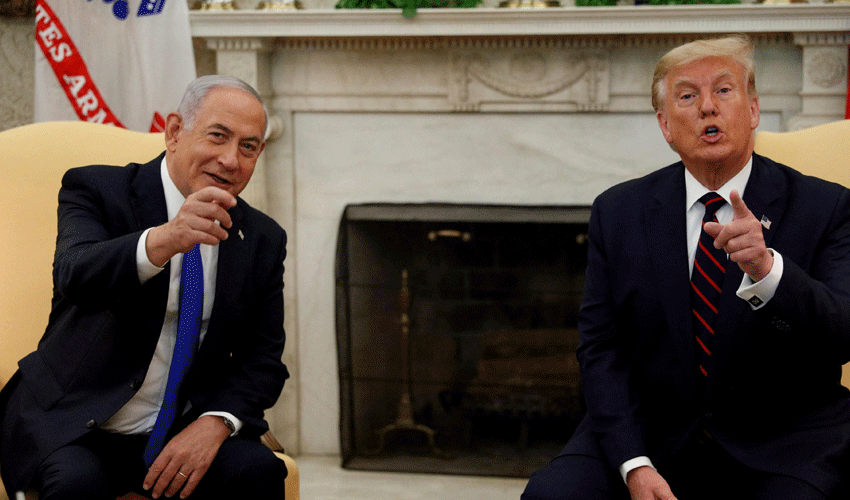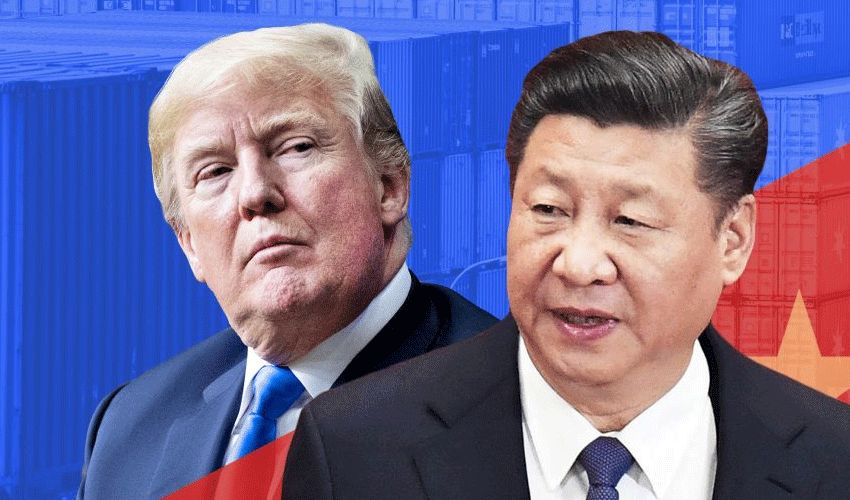United States President Donald Trump has announced an extraordinary proposal for the US to "take over" and "own" the Gaza Strip, suggesting that his administration will spearhead redevelopment efforts to transform the war-ravaged enclave into "the Riviera of the Middle East."
Speaking at the White House alongside Israeli Prime Minister Benjamin Netanyahu on Tuesday, Trump stated that his administration would lead an economic reconstruction initiative to "supply unlimited numbers of jobs and housing for the people of the area."
"The US will take over the Gaza Strip, and we will do a job with it too. We'll own it," Trump said, adding that his plan involved clearing debris, dismantling unexploded ordnance, and laying the foundation for large-scale investment.
The announcement marks a dramatic departure from longstanding US policy on the Israeli-Palestinian conflict and has drawn swift condemnation from Palestinian leaders and human rights advocates.
Hamas rejects ‘recipe for chaos’
The Palestinian group Hamas, which governs Gaza, condemned the plan, calling it a “recipe for creating chaos and tension in the region.”
"Our people in the Gaza Strip will not allow these plans to pass," Hamas said in a statement. "What is required is an end to the occupation and aggression against our people, not their expulsion from their land."
Trump’s remarks suggested that displaced Palestinians could be resettled elsewhere, though he also stated that "many people will live there," including Palestinians.
"This was not a decision made lightly. Everybody I’ve spoken to loves the idea of the United States owning that piece of land, developing and creating thousands of jobs with something that will be magnificent," he said.
Backlash from Palestinian advocates
The proposal has sparked widespread criticism from Palestinian advocates and analysts.
“He’s essentially saying that, officially, US policy now is the destruction of Palestinian society, the scattering of Palestinians to neighbouring countries, and, on top of that, for the US to come and own Palestinian territory indefinitely,” Omar Baddar, a political analyst and human rights advocate, told Al Jazeera.
Abed Ayoub, executive director at the American-Arab Anti-Discrimination Committee, described Trump’s remarks as “terrifying” and “insane.”
"This would go against all norms and international law. This isn't something that would be permitted to happen," Ayoub said.
US troops in Gaza?
When asked if the US military could be deployed to Gaza to maintain security, Trump did not rule out the possibility.
"As far as Gaza is concerned, we’ll do what is necessary. If it’s necessary, we’ll do that," he said.
Israeli Prime Minister Netanyahu, who praised Trump as the “greatest friend” Israel has ever had, said the proposal was worth considering.
“He sees a different future for that piece of land that has been the focus of so much terrorism, so many attacks against us, so many trials and so many tribulations,” Netanyahu said.
Democrats and Arab states reject proposal
Trump’s remarks were met with skepticism and strong opposition from Democratic lawmakers.
Congresswoman Rashida Tlaib, the only Palestinian member of the US Congress, accused Trump of “openly calling for ethnic cleansing while sitting next to a genocidal war criminal.”
Democratic Senator Chris Murphy dismissed the proposal as a distraction tactic.
"I have news for you – we aren’t taking over Gaza," he said on X (formerly Twitter).
Arab states have also rejected the idea. Saudi Arabia stated that it would oppose any attempts to displace Palestinians and reaffirmed that it would not establish diplomatic relations with Israel without the creation of a Palestinian state.
Trump’s proposal comes at a critical time, with negotiations underway to extend a fragile ceasefire between Israel and Hamas.
The initial 42-day truce, which includes the release of Israeli captives and Palestinian prisoners, is set to expire on March 1. Hamas has reportedly entered talks for a second phase of the ceasefire, which could see a full Israeli withdrawal from Gaza.
Trump, however, cast doubt on the agreement’s longevity.
“The strikes could start tomorrow,” he said. “There’s not a lot left to strike.”


























